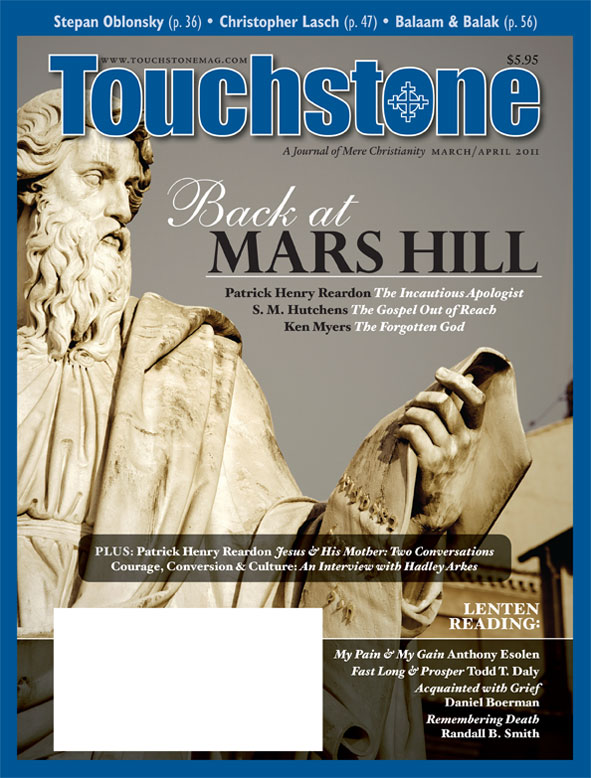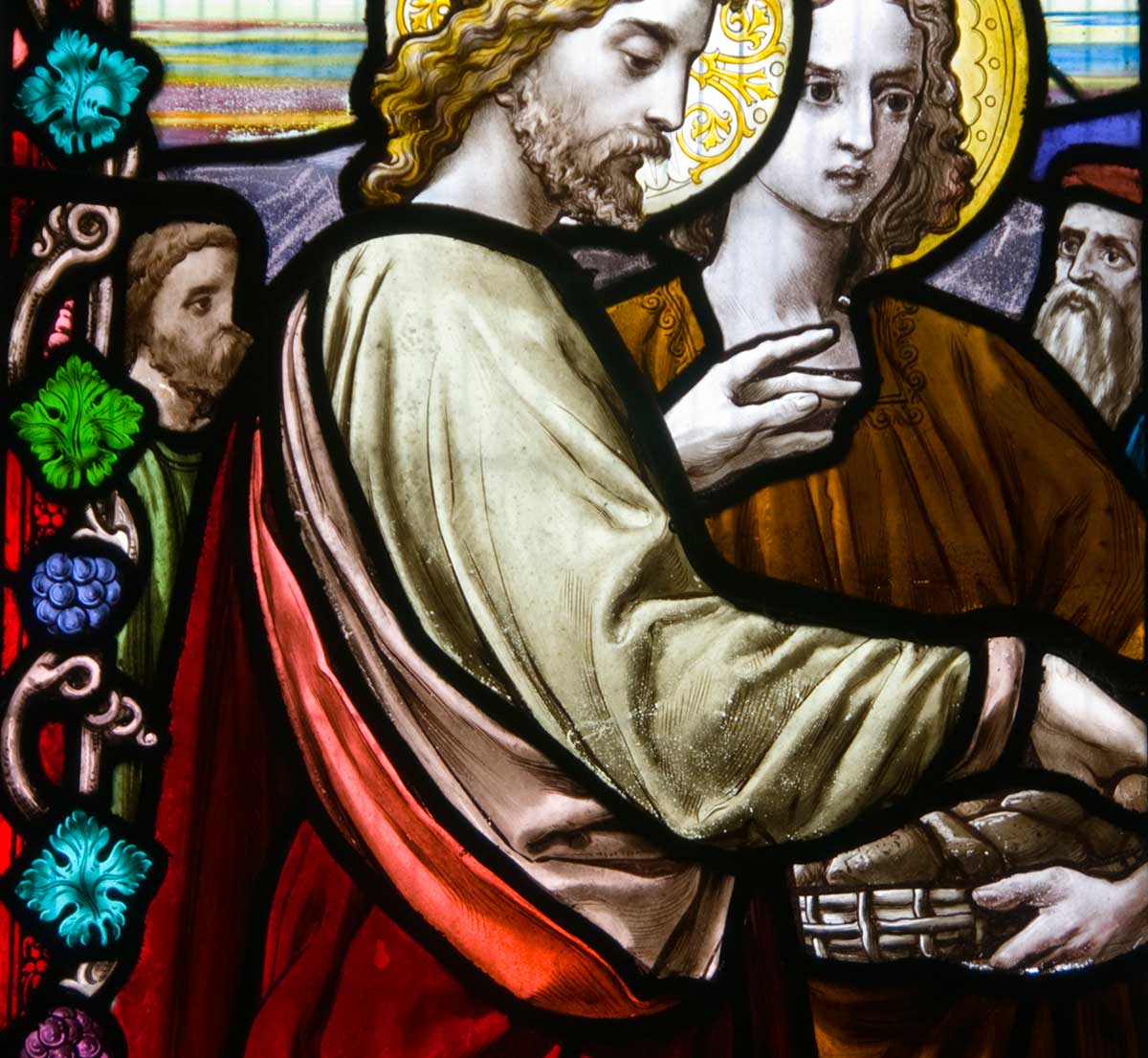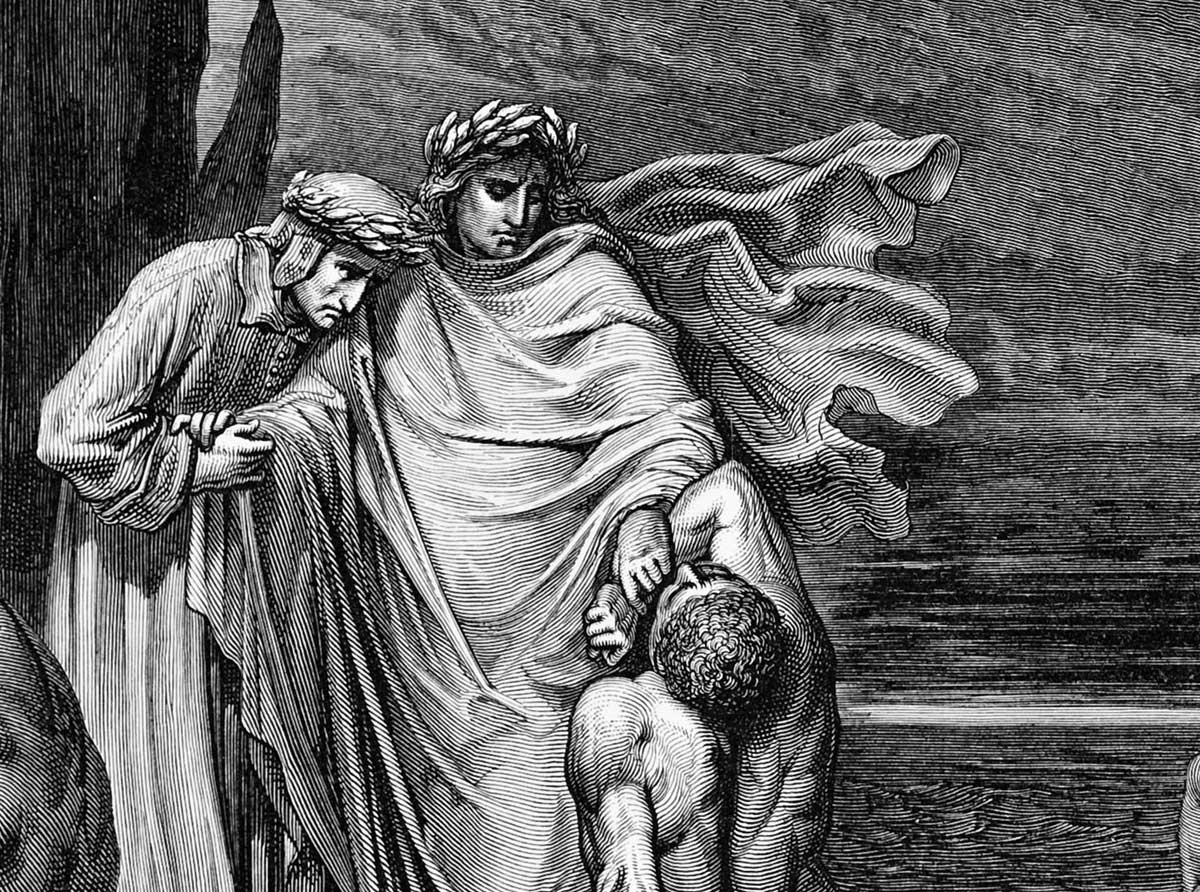Interview
Courage & Conversion
An Interview with Hadley Arkes
Hadley Arkes is the Edward N. Ney Professor in American Institutions at Amherst College and one of the country’s most prominent proponents of natural-law jurisprudence. He is the author of numerous books, including First Things (from which the journal took its name) and Natural Rights and the Right to Choose. His latest is a collection of essays called Constitutional Illusions and Anchoring Truths: The Touchstone of the Natural Law. In an interview for the Amherst College website about the book, Arkes had this to say about natural law: “The person who asks, ‘Can I reach judgments in the law without appealing to natural law?’ is rather like the man who asks, ‘Can I order coffee without using syntax?’”
He has long been involved in the pro-life movement, and is considered the architect of the Born-Alive Infants’ Protection Act of 2002. Born a Jew, he was baptized, confirmed, and received into the Roman Catholic Church on April 24, 2010, in the chapel of the Catholic Information Center in Washington, D.C. In a column written the next day for The Catholic Thing, Arkes described how his journey began. When he first started to consider seriously the issue of abortion, a fellow faculty member at Amherst, Daniel Robinson, showed him that
the Church’s position really depended on a combination of empirical evidence (embryology) woven with moral reasoning. It was natural law reasoning. As Aquinas said, the divine law we know through revelation, but the natural law we know through that reason that was natural for human beings. The Church’s moral position here did not depend on faith or belief. One didn’t have to be Catholic to understand it. And that was precisely the teaching of the Church.
As Arkes began to write about abortion, marriage, and other issues from a natural-law perspective, he acquired a following of readers who believed him to be a Catholic apologist. A Catholic friend said that the question for him was whether he believed in the Church as a truth-telling institution. “And I thought: I do, I really do. When the Church stands contra mundum, against the currents of relativism in the world, my inclination is to think that the Church has it right,” he wrote.
In a letter to those who had attended his reception into the Church, Arkes wrote that some friends had reproached him on the matter of his confidence in the Church. “And they had a point,” he wrote, “because talk about Jesus has not come readily to my lips. But of course, one can’t talk about the Church without talking about him who made it, formed it, planted the Mustard Seed. . . .”
Wanting to know more about this intriguing man and his compelling journey, I asked for an interview. His warmth, humor, optimism, scholarship, and generosity of spirit made for a most pleasant time together. Here is some of our conversation.
Marcia Segelstein (MS): You talk about the Church standing “contra mundum,” and there’s certainly a lot to stand against these days. Why do you believe society has strayed so far from traditional Judeo-Christian values?
Hadley Arkes (HA): The drift away is not something so remarkable or unthinkable. After all, isn’t there a constant drumbeat of complaints by God in the Old Testament about his people drifting away? In the normal laxity of ordinary persons, it’s always easier to fall away from the things that are good and rightful. Remember Mark Twain’s line in Pudd’nhead Wilson’s New Calendar [from Following the Equator] that we have a moral sense and an immoral sense. The moral sense tells us what is good and how to avoid it, and the immoral sense tells us what is bad and how to enjoy it.
It’s no wonder that human beings, faced with a collision between their interests and things that are rightful to do and that demand sacrifice have strong temptations to prefer their own interests. The unfolding logic of modernity is the notion that all passions should be gratified, that all inclinations should be pursued, that all desires stand on the same plane. “All men are created equal” has come to mean in its vulgar notion that we cannot discriminate between the finer desires and the coarser desires, between the more selfish desires and the more generous desires.
MS: How do we change course?
Marcia Segelstein is a part-time writer and full-time mother. A former senior producer for CBS News, she is a contributing editor for Salvo, and has written for First Things, OneNewsNow, and Worldmag.com.
subscription options
Order
Print/Online Subscription

Get six issues (one year) of Touchstone PLUS full online access including pdf downloads for only $39.95. That's only $3.34 per month!
Order
Online Only
Subscription

Get a one-year full-access subscription to the Touchstone online archives for only $19.95. That's only $1.66 per month!
bulk subscriptions
Order Touchstone subscriptions in bulk and save $10 per sub! Each subscription includes 6 issues of Touchstone plus full online access to touchstonemag.com—including archives, videos, and pdf downloads of recent issues for only $29.95 each! Great for churches or study groups.
Transactions will be processed on a secure server.
more on conversion from the online archives
more from the online archives
calling all readers
Please Donate
"There are magazines worth reading but few worth saving . . . Touchstone is just such a magazine."
—Alice von Hildebrand
"Here we do not concede one square millimeter of territory to falsehood, folly, contemporary sentimentality, or fashion. We speak the truth, and let God be our judge. . . . Touchstone is the one committedly Christian conservative journal."
—Anthony Esolen, Touchstone senior editor










